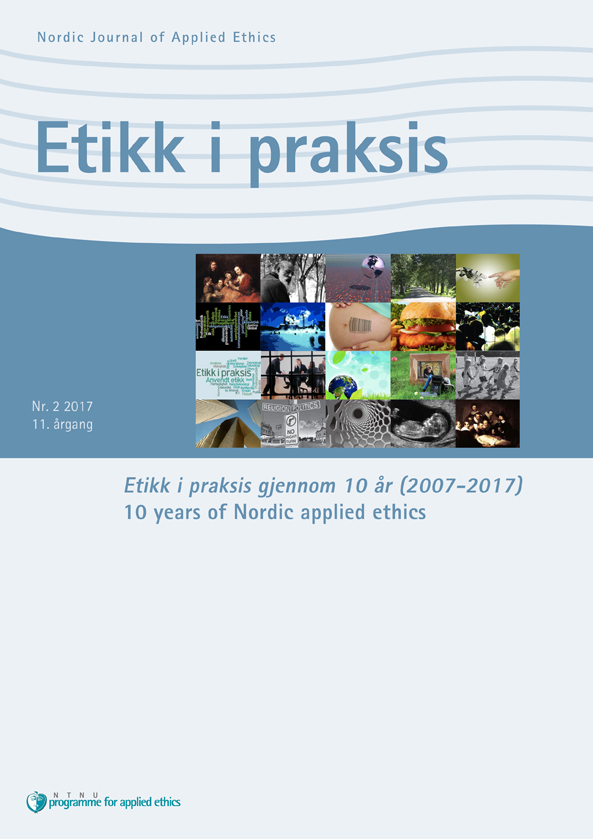The distant moral agent
DOI:
https://doi.org/10.5324/eip.v11i2.1988Keywords:
cosmopolitanism, global justice, moral claims, human rights, Peter SingerAbstract
Among the defining characteristics of moral cosmopolitanism are the convictions that personal relations, membership in social or political organizations like local communities or nation-states are insignificant for agents when determining their scope of moral concern. The moral scope is unlimited and the moral duties reach globally. Following up observations made by Onora O’Neill and others, it is argued that Singer’s model needs a complementary tool to allocate duties.
That tool can be found by supplementing the agent centered perspective of the model with a regard for the social and institutional circles encompassing right holders. Instead of focusing on the duty holder, I suggest that the cosmopolitan’s “ultimate unit of moral concern” – here, the claimholder is regarded central.
Thus, Singer’s cosmological model is kept, but in a rights-based methodological approach for allocating duties. Methodologically, what needs to be investigated is whether the scope of legitimate moral claims expands from the agent for the same reasons that the circle of moral concern expands from Singer’s agent.


